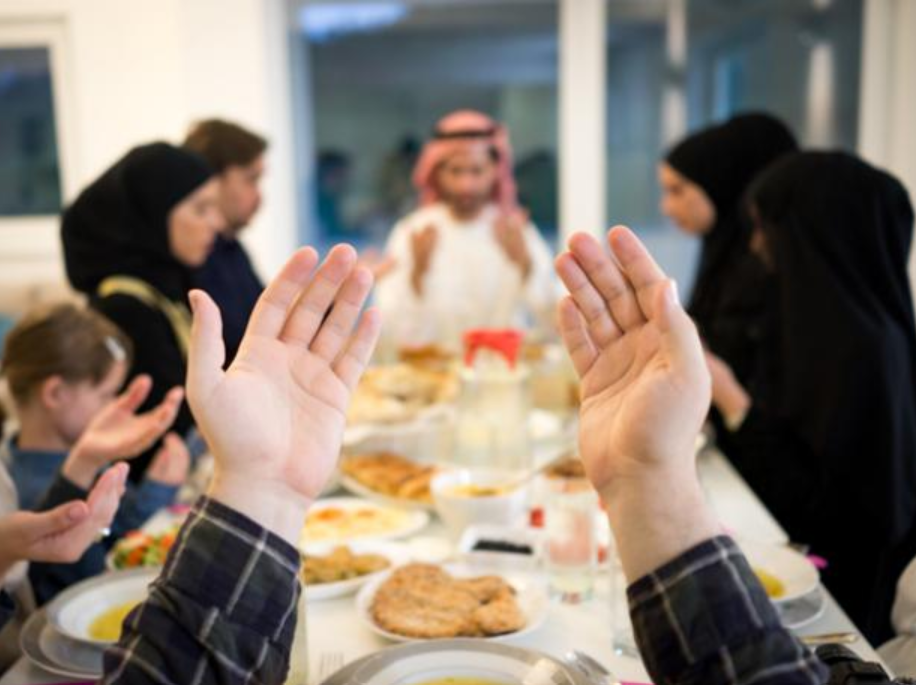This Ramadan Improve Your Sheraton While We Explain How Ramadan Fasts Boost Your Gut Health!

Fasting is not just a religious practice but is also a health trend that is gaining popularity among health enthusiasts. This is due to the benefits it has on the gut microbiome, which has a positive impact on gut health, boosts the immune system, and helps in muscle recovery. Researchers are still studying the exact roles placed by the various microorganisms, but recent studies have effectively demonstrated how fasting helps certain healthy bacteria, known as gut lachnospiraceae, to expand in number.
These bacteria are responsible for producing butyrate, a fatty acid that acts as the main energy source for colon cells and also helps reduce inflammation. It therefore helps the lining of the intestine. Fasting can also help in muscle metabolism and recovery. The increased numbers of lachnospiraceae only last during the month of fasting, but the metabolic and anti-aging effects have made fasting much more common as a diet and lifestyle alternative, especially in the form of intermittent fasting.
During Ramadan, it is important to break the fast with healthy foods that will help boost gut health. Plant-based foods, such as dates, contain fructans, a type of prebiotic fiber that helps increase the population of good bacteria. Fermented foods, such as yogurt, kefir milk, kimchi, kombucha, and sauerkraut, contain probiotics that help good bacteria thrive. Fiber-rich foods, such as whole grain cereals, nuts, seeds, lentils, and legumes, not only help boost gut health but also help you feel full for longer.
On the other hand, certain foods can negatively impact gastrointestinal health and should be avoided or consumed in limited quantities. Caffeine products worsen digestive problems, particularly by making it easier for the stomach acid to reflux. Highly processed foods with many chemicals and preservatives, red meat, alcohol, and sugary foods should also be avoided.
Iftar Meaning
The highlight of Ramadan is when Muslims break their fasts over an evening meal called iftar. A full day of fasting encourages many Muslims to better appreciate what they have. As well, the iftar meal is a time for sharing and community. In many communities, strangers will be invited into homes so that they won’t break their fast alone. Many organizations also provide free iftar meals to anyone, regardless of religion, during this time.
For iftar, it is traditional to break one’s fast with some dates and a drink of milk or water. Many Muslims around the world do this, but it isn’t a religious requirement. Al Bochi relates that “it’s very important to break your fast immediately at iftar time,” which coincides with sunset. There are apps and other resources that alert you to when you can break your fast, so you don’t have to keep your eyes on the horizon waiting for the sun to set.
To rehydrate, especially when Ramadan occurs during the summer, many people feature fresh, juicy fruits and salads to replenish their fluids. Many families use iftar as an opportunity to feast and may put on a lavish spread of rich foods to make up for the long daily fasts. However, too much rich food after a day of no food may cause some digestive issues.
Al Bochi can’t stress enough the importance of having balanced meals for iftar, as well as suhoor. “A great visual is the healthy plate model, which is half your plate for vegetables, a quarter of your plate for protein and a quarter of your plate for fiber-rich carbs,” she says
Suhoor Meaning
There is another Ramadan meal that is equally important called suhoor. In some parts of the world, this is also called sehri. This is the pre-dawn meal that is supposed to sustain fasters for the 13 to 17 hours they will need to fast. As Owais Siddiqui, a halal baker and caterer in Long Island, New York, points out, “suhoor is a meal that isn’t something people necessarily look forward to, as it entails getting up way early [before dawn] and preparing meals,” but it is “arguably the most important meal of the day.”
Al Bochi echoes this sentiment, advising that “waking up for suhoor is important to prepare you for the day’s fast. Skipping this meal can place your body in ‘starvation mode,’ which may result in muscle breakdown and extreme fatigue.”
Carbohydrates are very popular suhoor items, and many North American Muslims will use this pre-dawn meal to indulge in some American breakfast staples. However, Siddqui, who studied medicine in his native Pakistan, advises to take your own blood glucose levels into account. Fasting can have serious effects on your blood glucose levels.
We have a handy checklist for making sure you focus on your health during Ramadan. Some of his tips include the following:

- Hydrate before eating and limit consumption of beverages that contain high amounts of sugar.
- Consume nutrient-rich foods that also maintain adequate hydration, like smoothies and soups.
- Eat plenty of greens and foods rich in fiber.
- Opt for wholesome complex carbs for suhoor, like quinoa, bulgur, farro, brown rice and whole grain breads.
- Consume healthy lean proteins, including lentils, beans and nuts.
- Pace yourself. Slowly eating smaller portions may be better for your overall health.
- Avoid food high in fats, sugars and sodium. Instead of frying, try baking, steaming, grilling, stewing and roasting.
- Engage in a mild exercise routine.
Prioritizing gut health can also help reduce many common gastrointestinal complaints reported in Ramadan, including acid reflux and indigestion. Therefore, doctors in the UAE are calling on residents to maximize the benefits of fasting during the holy month and work on extending them as much as possible afterward. By doing so, residents can enjoy not only the religious benefits of fasting but also the health benefits that come with it.



